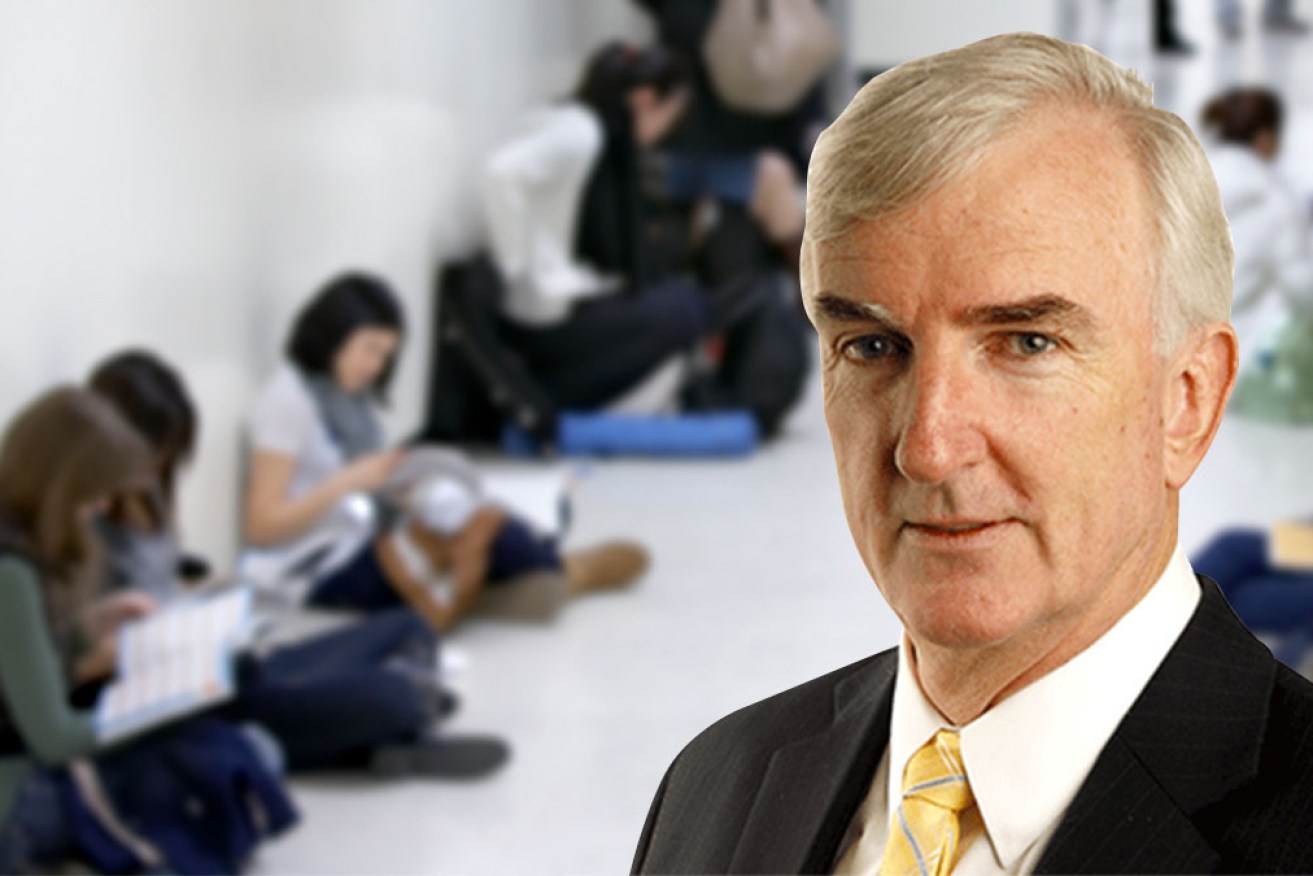Government stiffs stranded students by refusing early access to super


The government cannot turn its back on international students. Photo: The New Daily
Update: On Saturday morning, the Acting Immigration Minister, Alan Tudge, announced the government will allow students who have been in Australia for more than one year to access their superannuation
This is obscene: The Australian government is refusing to give stranded foreign students their own money back.
Desperate young people – among the first to lose their casual jobs and denied access to JobKeeper or JobSeeker payments – are not allowed to access their money held in their superannuation accounts.
Under the government’s COVID-19 emergency packages, Australians, New Zealanders and permanent residents are being allowed to withdraw up to $10,000 from their super funds tax free this financial year and next if they’ve lost their jobs.
But not the hundreds of thousands of temporary visa holders, primarily young people on student visas who have been working part time, keeping our hospitality industry functioning.
Encouraging them to come here to study has been official policy, one of our key export industries.
Now it’s official policy not just to abandon those students but to punish and discriminate against them.
Their own money, often a few thousand precious dollars, is not available when they have nothing.

Source: Australian Taxation Office
It remains policy that they only get their superannuation payments when they leave the country – and then after a hefty tax whack locals aren’t copping in their extraordinary times.
Right now there are students moving out of flats they can’t afford into cheaper dormitory accommodation – so much for social distancing.
There are others moving out of dormitories to be homeless.
Many of them simply can’t get home now if they want to.
A restaurateur near me still providing takeaway coffee and meals has been rotating her casual staff through a shift a week so they have some money.
She’s doing it at a loss and has been advised to close to preserve her business. She doesn’t want to – for her employees’ sake as well as her own.
The Spanish barista/student today told me the international community here is selling whatever they can. Want a cheap TV? Find a foreign student.
Others are dumping their possessions on footpaths as they can’t afford the cost of a removalist when they move to cheaper accommodation.
The barista has been working and studying here for two years. His superannuation would pay for food and keep him housed a bit longer.
As the restaurateur says, a few thousand dollars in super is a fortune right now for these people.
It’s their money, not the government’s, but they can’t have it when they need it.
The financial advice for Australians regarding superannuation withdrawals at this time is “don’t – unless you have absolutely no other option”. That doesn’t apply to these temporary residents.
The Sydney Morning Herald reports an international education agent, Mauricio Pucci, has turned over a house to destitute students.
Mr Pucci suggests early tax refunds for such students also would help, as many earned less than the tax-free threshold of $18,200 a year and thus would commonly be entitled to refunds of a thousand dollars or so.
The SMH reported that Social Services Minister Anne Ruston last week said she was looking at measures for those on temporary visas.
“I am currently working my way through those visa types to see what options there are available to assist those people,” she said.
Anne, it’s not hard, it’s not tricky. Start by giving desperate people their own money back. Now.
And then do more.
Tweet from @njm3864
Senator Ruston shares responsibility for Centrelink’s shortcomings. She is perhaps best known for reported remarks that increasing Newstart would just mean more money for pubs and drug dealers, remarks that she says were misreported.
The temporary residents are the most obvious and largest group falling through the gaps in the government’s safety net announcements.
Another shortcoming is the requirement for casual workers to have been with one employer for 12 months to have a chance of collecting the JobKeeper payment – a higher payment than the temporarily-boosted JobSeeker payment.
There is no equity is denying someone money because they’ve changed jobs at some point in the past year – as is frequently the case for casual workers.
Tweet from @gedkearney
It looks more iniquitous when some casuals who qualify for JobKeeper are actually getting a pay rise out of it.
Similarly, sole traders need to have been operating for more than a year to qualify and then show their income has dropped by 30 per cent compared with 12 months ago.
Too bad about start-ups, or businesses that were experiencing low turnover when they were new a year ago.
Another gap: Workers employed via a labour hire company laid off when their place of work sheds people, but the large hire company hasn’t had the required halving of turnover.
Tweet from @LitThom
The sum of the government’s three rescue packages is good, but there is more to be done, cracks to be fixed in the “bridge”.
This is not the time to be mean or to overload us with nationalistic rhetoric.
Get our policies right and we’ll create lifelong ambassadors for Australia. Get them wrong and there’s nothing to be proudly nationalistic about.








